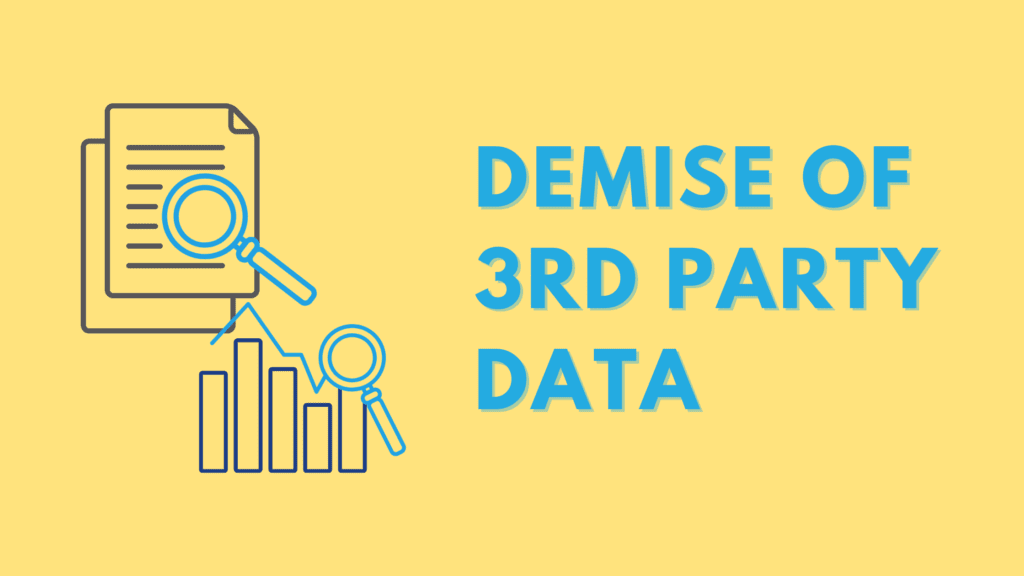
Earlier this year, Google announced that it is working on a privacy sandbox that will make 3rd party data or in layman’s term ‘cookies’ obsolete in next 2 years.
Apple then went a notch higher and announced that Safari browser is now fully blocking 3rd party data.
Over the years, marketers of all hues have relied on these cookies for various activities including but not limited to – showing contextual ads, retargeting and targeting, understanding user behaviour and more.
According to the post released earlier by Google –
“Users are demanding greater privacy–including transparency, choice and control over how their data is used–and it’s clear the web ecosystem needs to evolve to meet these increasing demands. Some browsers have reacted to these concerns by blocking third-party cookies, but we believe this has unintended consequences that can negatively impact both users and the web ecosystem.”
To understand the implications, let’s first see what 3rd Party Data is.
Understanding 3rd Party Data
It is a piece of data that is created by domain other than the ones you’re visiting. Most often these innocuous looking cookies collect the browser usage patterns.
The data thus collected is shared with ad providers for targeting/retargeting of ads or content.
The best example to explain this is – imagine you’re visiting an ecommerce site and clicked on a certain product. You might have been just researching about the product and didn’t buy it.
Now you move to any other site and voila, you see the same or similar product ad is shown to you.
That is 3rd party cookies/data at work.
While visiting the first site, another domain collected your data of the page that was seen and now when you move between to other site, the same has relied on those cookies to share related content to you.
What is happening now?
In the battle between browsers, the vendors have realized the importance of privacy. Many users were often deleting cookies for better experience (read they were afraid of being spied on).
At the same time, with the onset of GDPR and CCPA, there has been close scrutiny on cookie usage.
So browsers have no choice but to comply with some the rulings of these bodies.
What we now is browsers trying to offer users best privacy measures. Safari & Mozilla announced that they are already blocking the 3rd party cookies but on other hand we are also seeing Google Chrome taking a phased approach.
I believe there’s a lot at stake for Google compared to the other two browsers. With its ad platform, Google over the years has relied on data for serving ads that are relevant to the readers by leveraging 3rd party data.
Completely stopping would make it tough for them and over next two years, they will try to create a viable alternative to still be able to serve contextual ads.
What can marketers do?
Without sounding too technical these platforms are relooking at classifying the users for better targeting.
Marketers will have to look at how each browsers will be treating user data and align future targeting strategies. But in the meantime, they can start working on –
- Creating keyword-based content – It won’t be back to keyword stuffing but marketers would have to create content using context keywords for effective consumption
- Intelligent automation – How can you pass on data between your marketing automation tools and orchestrate relevant campaigns
Remember, everyone is grappling with the changes so I believe that at some point each of the vendors will arrive at a common ground on how to treat 3rd party data but in the meantime, we need to start finding ways to make marketing work better.
Your thoughts?
- Have you used 3rd Party data?
- What workaround are you trying to build?
- Is this a good move from the browsers?